
The Kinsey Reports are two scholarly books on human sexual behavior, Sexual Behavior in the Human Male (1948) and Sexual Behavior in the Human Female (1953), written by Alfred Kinsey, Wardell Pomeroy, Clyde Martin, and Paul Gebhard and published by W.B. Saunders. Kinsey was a zoologist at Indiana University and the founder of the Kinsey Institute for Research in Sex, Gender, and Reproduction. Jean Brown, Cornelia Christenson, Dorothy Collins, Hedwig Leser, and Eleanor Roehr were all acknowledged as research assistants on the book's title page. Alice Field was a sex researcher, criminologist, and social scientist in New York; as a research associate for Sexual Behavior in the Human Female, she provided assistance with legal questions.
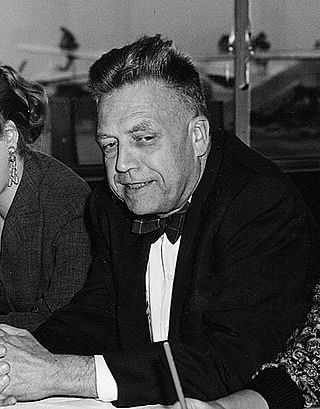
Alfred Charles Kinsey was an American sexologist, biologist, and professor of entomology and zoology who, in 1947, founded the Institute for Sex Research at Indiana University, now known as the Kinsey Institute for Research in Sex, Gender, and Reproduction. He is best known for writing Sexual Behavior in the Human Male (1948) and Sexual Behavior in the Human Female (1953), also known as the Kinsey Reports, as well as for the Kinsey scale. Kinsey's research on human sexuality, foundational to the field of sexology, provoked controversy in the 1940s and 1950s, and has continued to provoke controversy decades after his death. His work has influenced social and cultural values in the United States as well as internationally.

K-19: The Widowmaker is a 2002 American historical submarine film directed and produced by Kathryn Bigelow, and produced by Edward S. Feldman, Sigurjon Sighvatsson, Christine Whitaker and Matthias Deyle with screenplay by Christopher Kyle. An international production of the United States, United Kingdom, Germany and Canada, the film takes place in 1961 and focuses its story on the Soviet Hotel-class submarine K-19.

William John Neeson is an actor from Northern Ireland. He has received several accolades, including nominations for an Academy Award, a BAFTA Award, three Golden Globe Awards, and two Tony Awards. In 2020, he was placed seventh on The Irish Times list of Ireland's 50 Greatest Film Actors. Neeson was appointed Officer of the Order of the British Empire (OBE) in 2000.

The Kinsey Institute for Research in Sex, Gender, and Reproduction is a research institute at Indiana University. Established in Bloomington, Indiana, in 1947 as a nonprofit, the institute merged with Indiana University in 2016, "abolishing the 1947 independent incorporation absolutely and completely."

Paul Henry Gebhard. Jr. was an American anthropologist and sexologist. Born in Rocky Ford, Colorado, he earned a BS and a PhD from Harvard in 1940 and 1947, respectively. Between the years 1946 and 1956, Gebhard was a close colleague to sex researcher Alfred Kinsey. It was acknowledged in Gebhard's New York Times obituary that Kinsey was in fact his mentor and that Gebhard was fascinated when Kinsey first met him and revealed to him that the men's room at Grand Central Terminal in New York City was a frequent site for gay cruising.
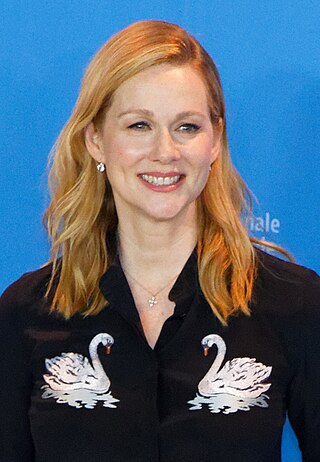
Laura Leggett Linney is an American actress. She is the recipient of several awards, including two Golden Globe Awards and four Primetime Emmy Awards, and has been nominated for three Academy Awards and five Tony Awards.

Shattered Glass is a 2003 biographical drama film about journalist Stephen Glass and his scandal at The New Republic. Written and directed by Billy Ray in his feature directorial debut, the film is based on a 1998 Vanity Fair article of the same name by H. G. Bissinger and chronicles Glass' fall from grace when his stories were discovered to be fabricated. It stars Hayden Christensen as Glass, alongside Peter Sarsgaard, Chloë Sevigny, and Steve Zahn.
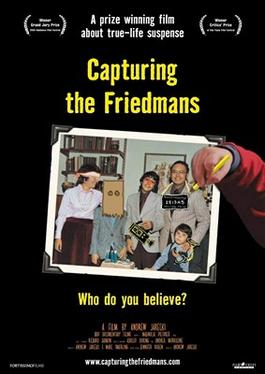
Capturing the Friedmans is a 2003 HBO documentary film directed by Andrew Jarecki. It focuses on the 1980s investigation of Arnold and Jesse Friedman for child molestation. The film premiered at the 2003 Sundance Film Festival where it received critical acclaim as well as the Grand Jury Prize: Documentary. The film went on to be nominated for the Academy Award for Best Documentary Feature.
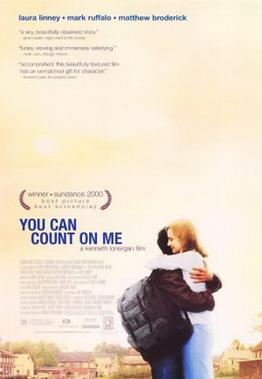
You Can Count on Me is a 2000 American drama film written and directed by Kenneth Lonergan in his feature directorial debut. Starring Laura Linney, Mark Ruffalo, Rory Culkin, and Matthew Broderick, the film follows a single mother living in a small Catskill Mountains town, and her complicated relationships with family and friends.

John Peter Sarsgaard is an American actor. He studied at the Actors Studio, before rising to prominence playing atypical and sometimes villainous roles in film and television.

P.S. is a 2004 American drama film directed by Dylan Kidd. The screenplay by Kidd and Helen Schulman is based on Schulman's 2001 novel p.s. The film stars Laura Linney and Topher Grace.
William Condon is an American director and screenwriter. Condon is known for writing and/or directing numerous successful and acclaimed films including Gods and Monsters, Chicago, Kinsey, Dreamgirls, The Twilight Saga: Breaking Dawn – Part 1, The Twilight Saga: Breaking Dawn – Part 2, and Beauty and the Beast. He has received two nominations for the Academy Award for Best Adapted Screenplay, Gods and Monsters and Chicago, winning for the former.

The Squid and the Whale is a 2005 American independent comedy-drama film written and directed by Noah Baumbach and produced by Wes Anderson. It tells the semi-autobiographical story of two boys in Brooklyn dealing with their parents' divorce in 1986. The film is named after the giant squid and sperm whale diorama housed at the American Museum of Natural History, which is seen in the film. The film was shot on Super 16 mm, mostly using a handheld camera.

The Inner Circle is a novel by T. C. Boyle first published in 2004 about the development of sexology in the United States and about Alfred Kinsey's rise to fame during the late 1940s and early 1950s as seen through the eyes of one of his loyal assistants.
The Society for the Scientific Study of Sexuality is a 501(c)(3) non-profit professional membership organization "dedicated to advancing knowledge of sexuality and communicating scientifically based sexuality research and scholarship to professionals, policy makers, and the general public." SSSS was originally incorporated in 1966 as The Society for the Scientific Study of Sex, but in 1996, the name was expanded to The Society for the Scientific Study of Sexuality to better reflect the wide range of members' research interests and because the term "sex" was often interpreted narrowly to refer only to "sexual behavior". The membership includes anthropologists, biologists, educators, historians, nurses, physicians, psychologists, sociologists, theologians, therapists, and others. SSSS produces the Journal of Sex Research, a scholarly journal currently published by Taylor & Francis.
The 9th Golden Satellite Awards, honoring the best in film and television of 2004, were presented by the International Press Academy on January 23, 2005.

The Mysteries of Pittsburgh is a 2008 comedy-drama film based on Michael Chabon's 1988 novel of the same name. The film was written and directed by Rawson Marshall Thurber. It was produced by Michael London and executive produced by Omar Amanat. Shooting in Pittsburgh ended in October 2006, with the film set for release in 2008. It made its world premiere in January 2008 at the Sundance Film Festival. Set in 1980s Pittsburgh, the film follows the affairs of two young men with one woman, and later also with each other.

Clyde E. Martin was an American sexologist. He was an assistant to Alfred Kinsey on the Kinsey Reports and served as a co-author on Sexual Behavior in the Human Male and Sexual Behavior in the Human Female.
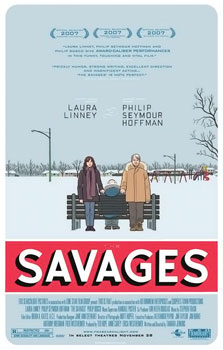
The Savages is a 2007 American black comedy-drama film written and directed by Tamara Jenkins. It stars Laura Linney, Philip Seymour Hoffman, and Philip Bosco.

















